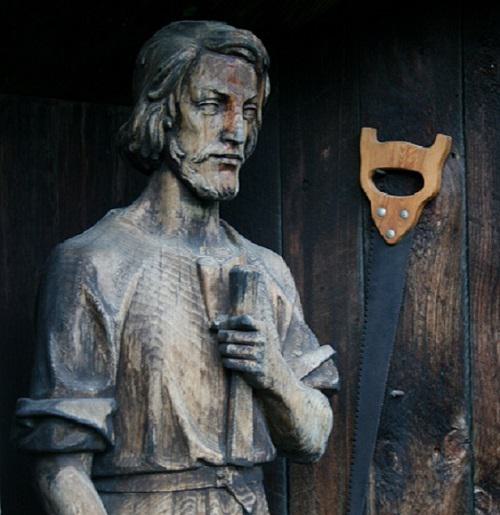This is an excerpt from Charles Péguy’s The Portal of the Mystery of Hope (Trans. David Louis Schindler, Jr. [Grand Rapids, MI: William B. Eerdmans Publishing Co., 1986]: 119‒21). It is published here with permission and available for purchase in its entirety on the publisher’s webpage.
The Portal of the Mystery of Hope, first published in 1912, is Charles Péguy’s most famous prose-poem. Going through over sixty editions in the last hundred years, it gives voice to the French socialist’s profound conversion to the Catholic faith, anchored in a vision that married eschatological vision with a deep sense of social realities. For Péguy,“the little girl Hope” is the most dynamic of the three virtues, enabling Faith and Charity to reach those parts of the humanity which a merciful God desires to plumb. The virtue of hope was of especial relevance to Péguy himself, whose personal circumstances prevented him from receiving the very sacraments around which his poetic vision revolved. Few poets have meditated so deeply on the meaning of human work, and he remains the poet of the disenfranchised and the dispossessed: those who might be tempted to despair at the futility of everything they do.
Every day, you say, all your days are alike
On earth, all days are the same.
Departing from the same mornings they convey you to the same
evenings.
But they do not lead you to the same eternal evenings.
Every day, you say, looks the same.—Yes, every earthly day.
But have no fear, my children, they do not at all look like
The last day, which is different from any other.
Every day, you say, repeats itself.—No, they are added
To the eternal treasury of days.
The bread of each day to that of the day before.
The suffering of each day
(Each though it repeats the suffering of the day before)
Is added to the eternal treasury of sorrows
The prayer of each day
(Even though it repeats the prayer of the day before)
Is added to the eternal treasury of prayers.
The merit of each day
(Even though it repeats the merit of the day before)
Is added to the eternal treasury of merits.
On earth everything repeats itself. In the same matter.
But in heaven everything counts
And everything increases. The grace of each day
(Even though it repeats the grace of the day before)
Is added to the eternal treasury of graces. And it’s for this that the
young Hope
Alone doesn’t spare anything. When Jesus worked at his father’s shop
Every day he relived the same day.
There was never any trouble
Except once.
And yet this is the fabric, within these days of sameness,
This is the web of the same workdays
That make up, that eternally make up
The admirable Life of Jesus before his preaching
His private life
His perfect life, his model life
The life he offers as an example, as an inimitable Model to imitate.
Charles Péguy (1873-1914) was a notable French poet, essayist and editor.
Keep reading! The next article in this issue is,More Than Just the Paycheck: The Dignity of Work by Deborah Savage
Charles Péguy (1873-1914) was a notable French poet, essayist and editor.



